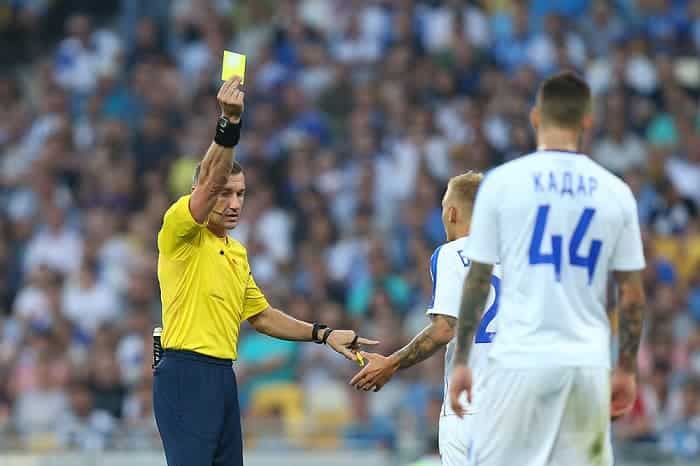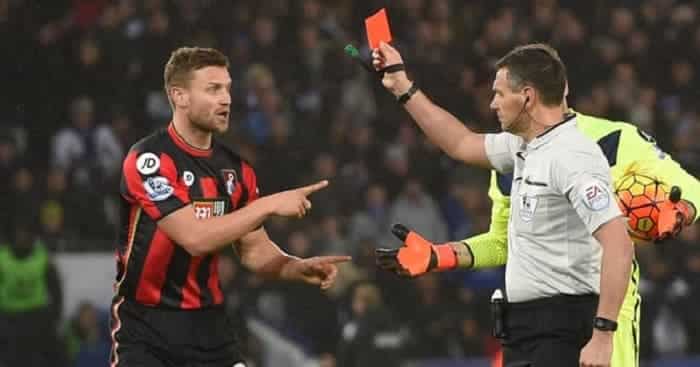In football, there are different rules and regulations that have already been set by the officials long back. A referee is the only authorized person to give the call for any foul by the player on the field. The rules of the game are known as the Laws of the game, which in all 17. A referee’s decision is the final decision that cannot be argued. In many international leagues, there are 4 referees for one match. So take a look at all you need to know about How many cards are in a football?.
Many sports leagues have a different set of cards that are shown to signal or give a sign to a player. The two primary color cards are Red and Yellow. In football, we use these to dismiss or caution a player. These were first put into action in the year 1970. It is also noted that once the cards are issued by the referee, he cannot reverse misconduct once the match resumes. So let’s take a look at the meaning and the occasions it is used.
How many cards are in a football?
For Caution: Yellow Card

In a match, a referee can issue only a yellow card only to indicate a caution – a booking. Yellow card warnings would count in normal play and during any moment for stoppages. A player can get officially cautioned for any of the following offenses.
- A player guilty of unsporting behavior or reckless actions.
- Displaying dissent by word or by action whether it is verbal or non verbal
- Using informal or impolite behavior which delays the restart of play.
- Failing to retreat the minimum needed distance following a free- kick, corner, or throw-in.
- Persistent fouling or breaches FIFA Laws of the Game constantly.
- Entering or re-entering the field of play without carrying authorization from the match referee.
- Designedly exiting the pitch ( field of play) without first getting allowance to leave from the referee.
For Dismissal: Red Card

In a match, the referee appointed can make use of a red card to indicate an expulsion from the game or dismissal. The player might receive a red card only if they commit any of the following serious offenses.
- Severe or dangerous foul play, that might be dangerous for the player injured.
- Displaying or using violent conduct.
- Misconduct- like spitting or bad mouthing at another player or at any other person.
- Using abusive or offensive gestures or insulting language .
- Have received a second yellow cautionary card during the same game.
- Denying a deliberate hand ball offence and a goal scoring opportunity. Take a note that this rule excludes a goalkeeper while they are handling the ball inside their own penalty area.
